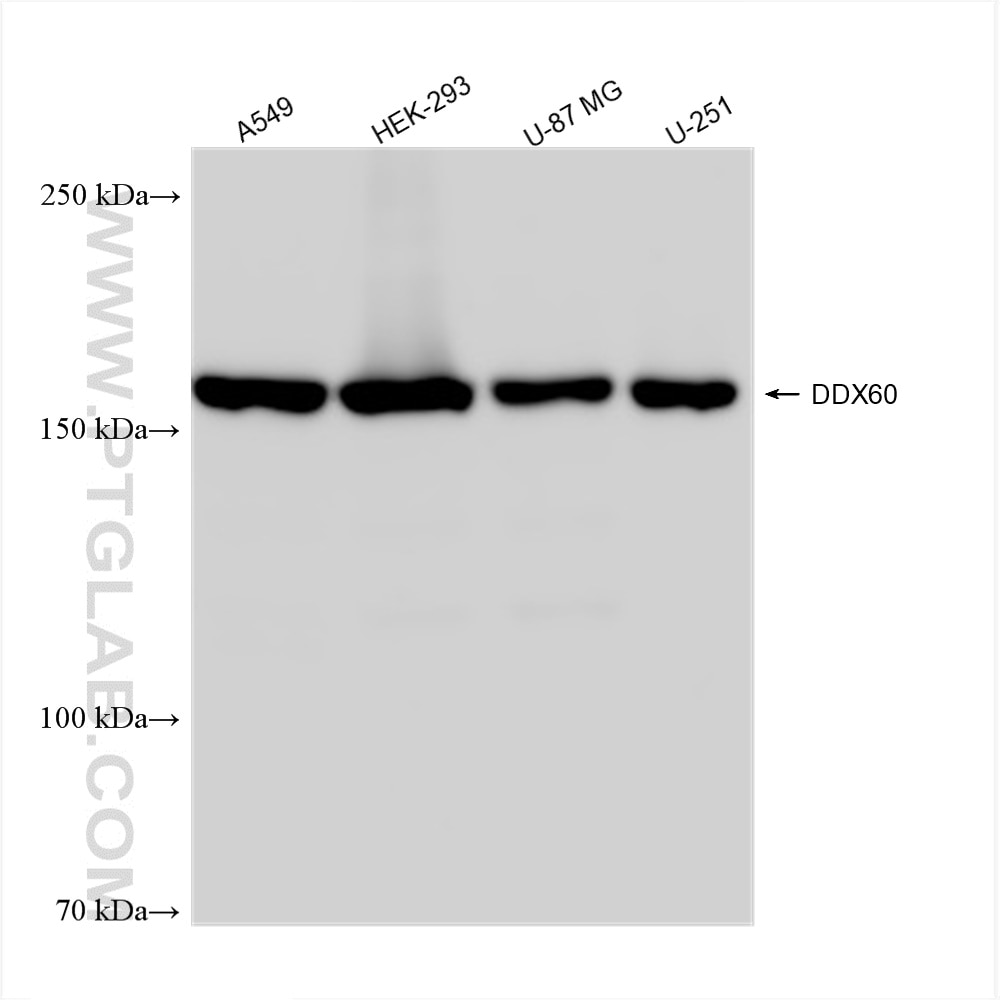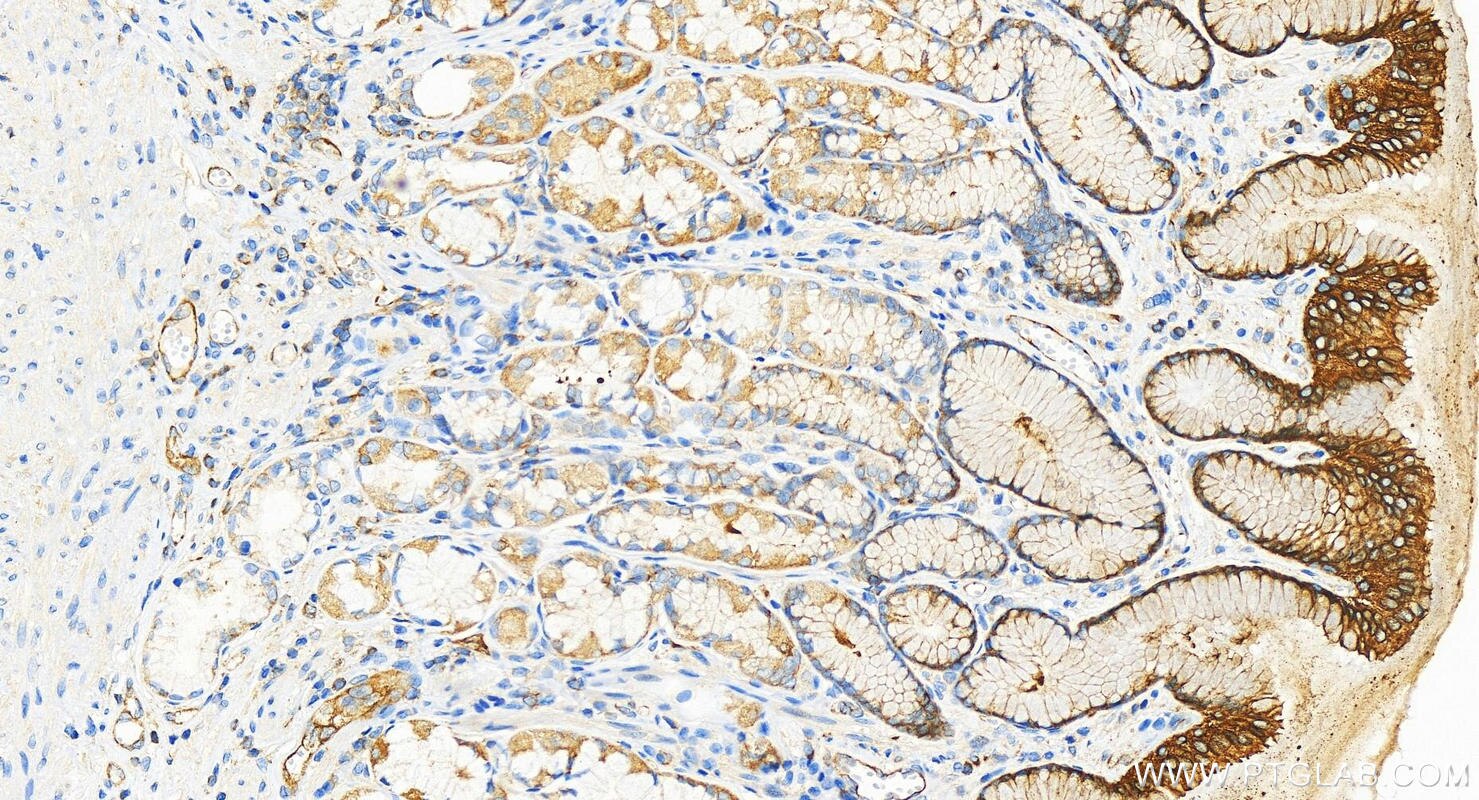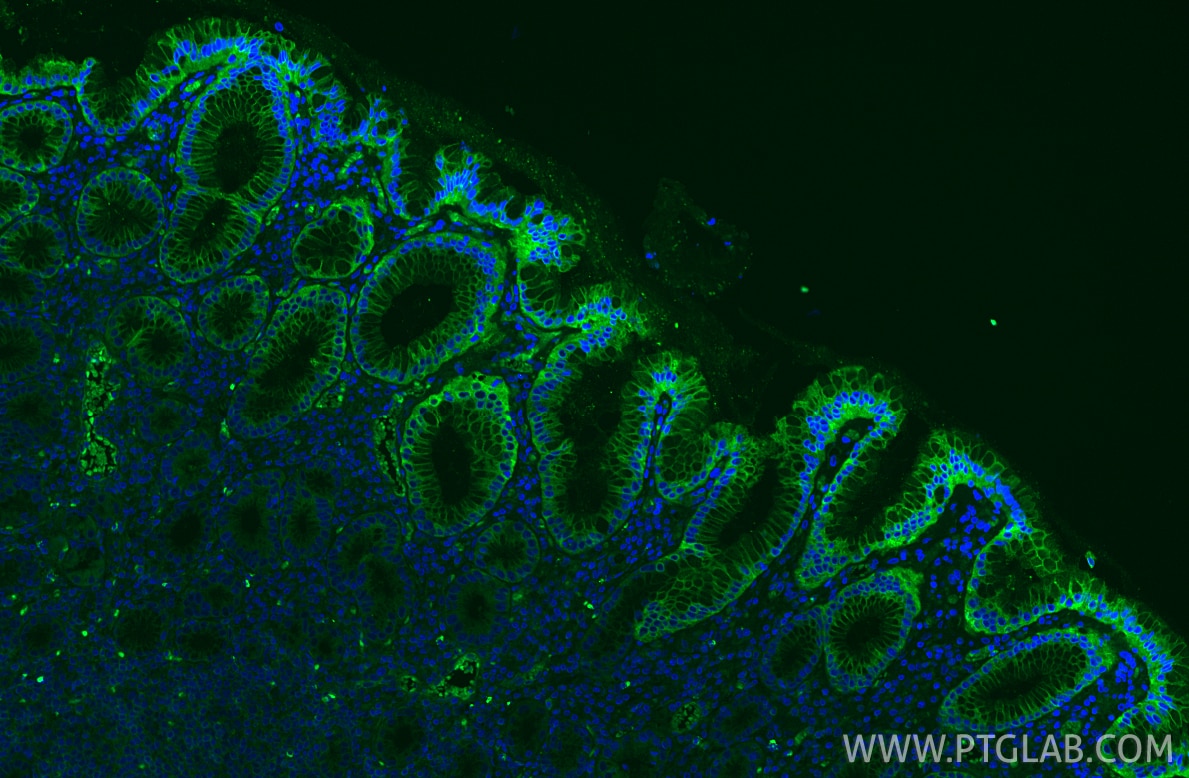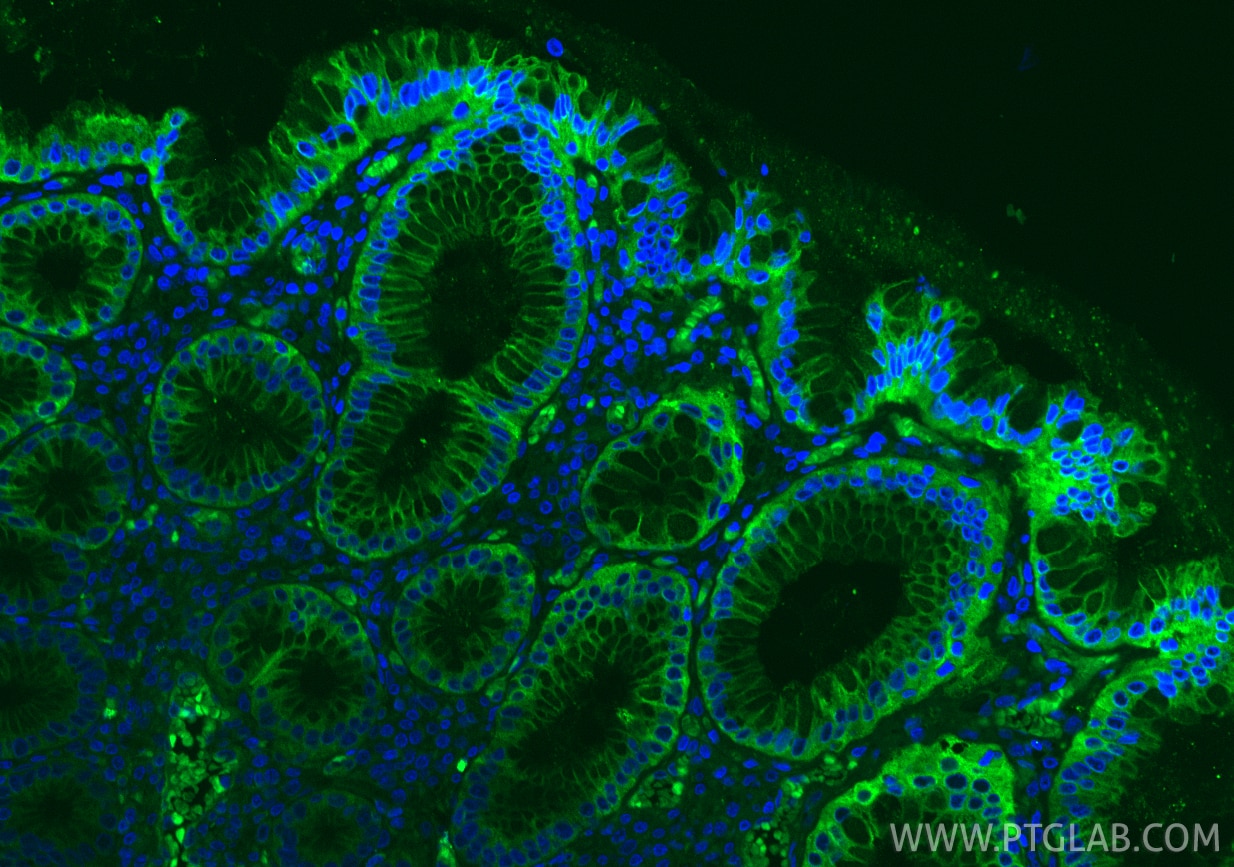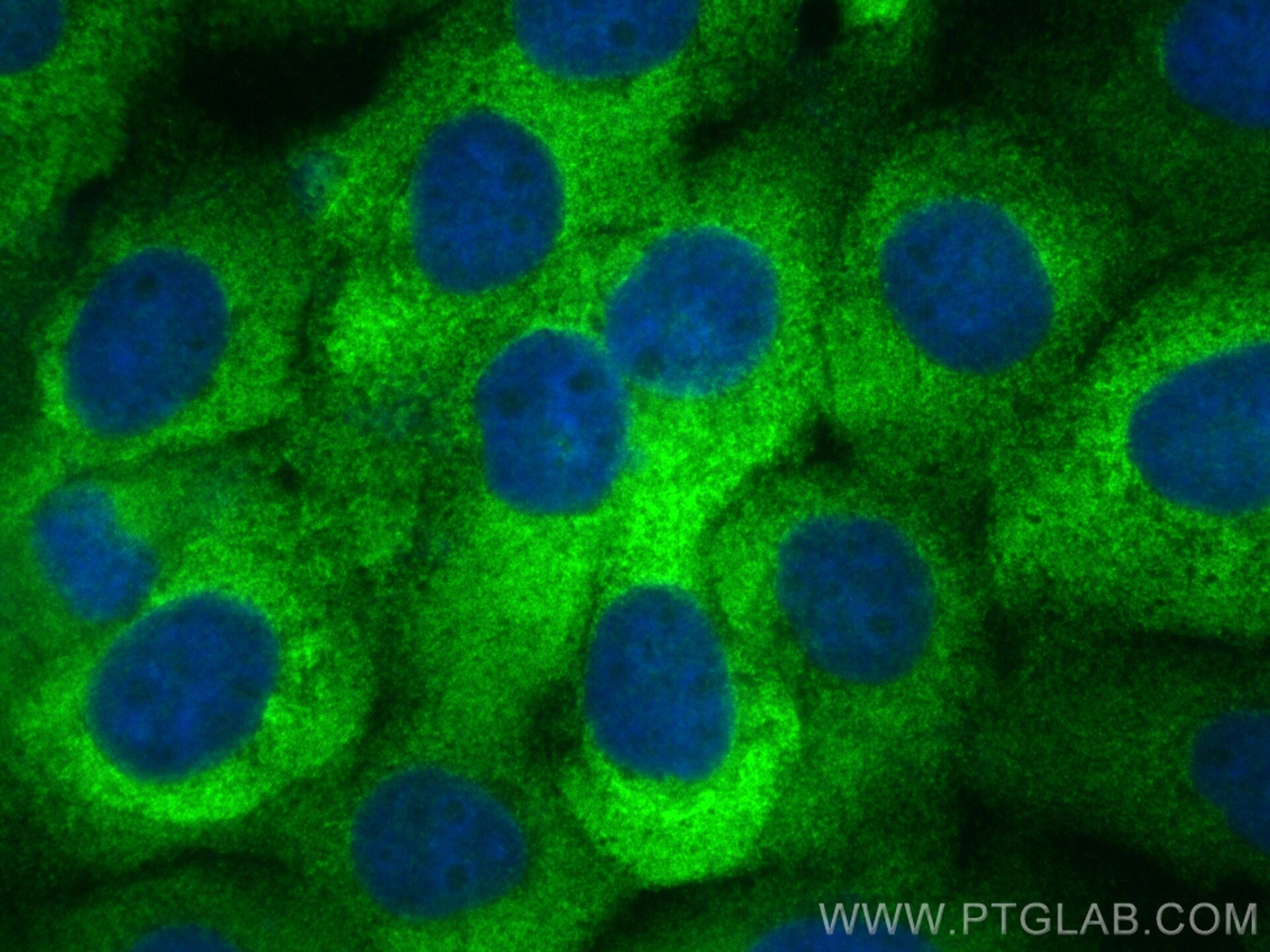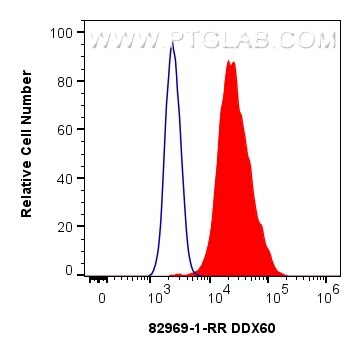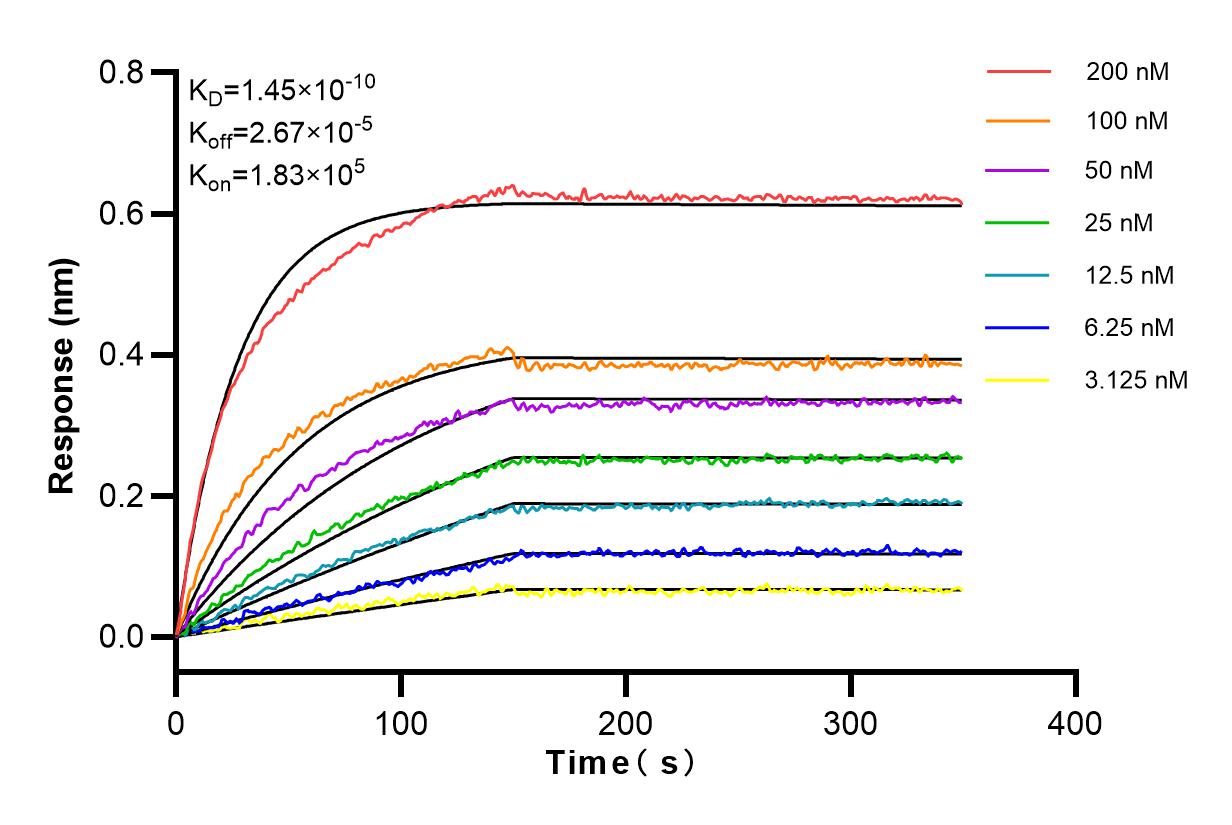Validation Data Gallery
Tested Applications
| Positive WB detected in | A549 cells, HEK-293 cells, U-87 MG cells, U-251 cells |
| Positive IHC detected in | human stomach tissue Note: suggested antigen retrieval with TE buffer pH 9.0; (*) Alternatively, antigen retrieval may be performed with citrate buffer pH 6.0 |
| Positive IF-P detected in | human stomach tissue |
| Positive IF/ICC detected in | A431 cells |
| Positive FC (Intra) detected in | A431 cells |
Recommended dilution
| Application | Dilution |
|---|---|
| Western Blot (WB) | WB : 1:5000-1:50000 |
| Immunohistochemistry (IHC) | IHC : 1:1000-1:4000 |
| Immunofluorescence (IF)-P | IF-P : 1:500-1:2000 |
| Immunofluorescence (IF)/ICC | IF/ICC : 1:50-1:500 |
| Flow Cytometry (FC) (INTRA) | FC (INTRA) : 0.20 ug per 10^6 cells in a 100 µl suspension |
| It is recommended that this reagent should be titrated in each testing system to obtain optimal results. | |
| Sample-dependent, Check data in validation data gallery. | |
Product Information
82969-1-RR targets DDX60 in WB, IHC, IF/ICC, IF-P, FC (Intra), ELISA applications and shows reactivity with human samples.
| Tested Reactivity | human |
| Host / Isotype | Rabbit / IgG |
| Class | Recombinant |
| Type | Antibody |
| Immunogen |
CatNo: Ag34406 Product name: Recombinant human DDX60 protein Source: e coli.-derived, PET28a Tag: 6*His Domain: 1135-1250 aa of BC038115 Sequence: KLGAVENAAESVSTFLKKKQETKRPPKADKEAHVMANKLRKVKKSIEKQKIIDEKSQKKTRNVDQSLIHEAEHDNLVKCLEKNLEIPQDCTYADQKAVDTETLQKVFGRVKFERKG 相同性解析による交差性が予測される生物種 |
| Full Name | DEAD (Asp-Glu-Ala-Asp) box polypeptide 60 |
| Calculated molecular weight | 1712 aa, 198 kDa |
| Observed molecular weight | 170-200 kDa |
| GenBank accession number | BC038115 |
| Gene Symbol | DDX60 |
| Gene ID (NCBI) | 55601 |
| RRID | AB_3670716 |
| Conjugate | Unconjugated |
| Form | |
| Form | Liquid |
| Purification Method | Protein A purification |
| UNIPROT ID | Q8IY21 |
| Storage Buffer | PBS with 0.02% sodium azide and 50% glycerol{{ptg:BufferTemp}}7.3 |
| Storage Conditions | Store at -20°C. Stable for one year after shipment. Aliquoting is unnecessary for -20oC storage. |
Background Information
DDX60, also called FLJ20035, is an IFN-inducible gene that has been identified via a microarray analysis of genes induced by viral infection in human dendritic cells (DCs). DDX60 expression correlated strongly with immune checkpoint and immune system-related metagene clusters, and DDX60 promoted cell proliferation, migration, and invasion and was related to poor prognosis and immune resistance(PMID: 37274827). Involved in RIG-I-dependent and independent innate immune responses, DDX60 has been proven to be associated with the development of tumors.
Protocols
| Product Specific Protocols | |
|---|---|
| FC protocol for DDX60 antibody 82969-1-RR | Download protocol |
| IF protocol for DDX60 antibody 82969-1-RR | Download protocol |
| IHC protocol for DDX60 antibody 82969-1-RR | Download protocol |
| WB protocol for DDX60 antibody 82969-1-RR | Download protocol |
| Standard Protocols | |
|---|---|
| Click here to view our Standard Protocols |

